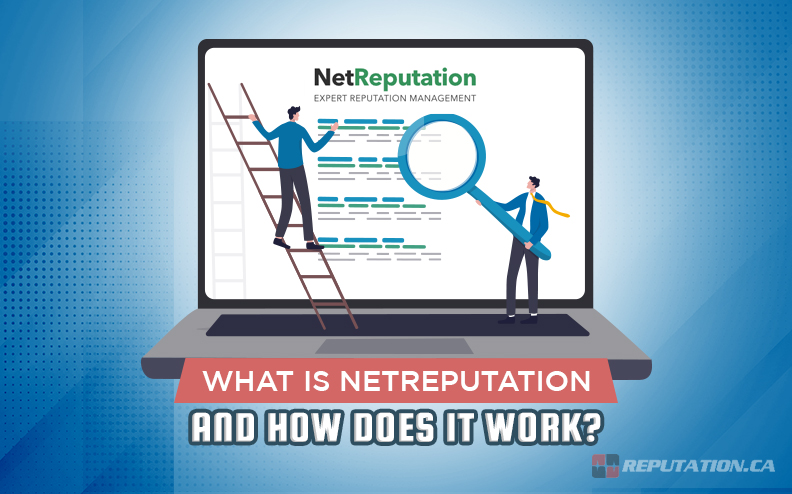You have a problem. There’s something bad about you that’s online, and it won’t go away. Maybe it’s an old arrest record that pops up every time anyone Googles your name. Or maybe an angry customer went on a rampage and plastered terrible reviews all over the internet. Some businesses even have competitors who deliberately trash their reputation to steal business.
The fallout is brutal, and it happens fast. Your job interviews dry up because hiring managers always Google candidates now. Your possible clients back out of deals after they search your name. Even your personal life takes a hit when new acquaintances you meet look you up and find all that garbage.
The worst part is that you can’t do much about it on your own. Most of this content lives on websites that you don’t control, posted by people you can’t reason with. Legal threats usually make the situation worse. Website owners almost never respond to removal requests. The online reputation management industry has exploded into a multi-billion-dollar business for just this reason. Let’s break down how reputation management companies work and what actually happens after you hire one.
Here’s how professional reputation management works and how it can help manage what shows up about you online!
What NetReputation Can Do For You
NetReputation is a company that specializes in helping people and businesses clean up their web presence whenever negative content starts to damage their reputation. Since the company launched, they’ve already worked with more than 30,000 clients, and their services usually fall into 4 main categories that address the most common reputation problems clients run into today.
Review management is probably their bread and butter service. Maybe you own a restaurant, and one very angry customer decides to go on a rampage and leave 5 different 1-star reviews through fake accounts. Or maybe you’re a doctor whose former patient has decided to spread false malpractice claims across all the medical review sites on the internet. NetReputation knows how to deal with these types of reviews through all the right channels, and they’ll also help you rebuild your entire review profile by encouraging legitimate feedback from your actual customers.
The company also specializes in search result optimization, and this basically means that they work to push any negative content way down in the search rankings, where almost nobody will ever find it. Whenever somebody types your name or your business into Google, you obviously want them to find accurate, positive information about you – not some ancient blog post that a disgruntled ex-employee wrote 5 years ago out of spite. NetReputation creates and then promotes the positive content that will eventually take over those top search positions.

Some situations require the harmful content to actually be removed from the internet completely. NetReputation has experience with getting damaging content taken down from websites, particularly when that content violates either platform policies or legal standards. The company follows all the FTC guidelines for truthful practices in reputation management, so they refuse to create fake reviews or to mislead anyone about who you are or what your business actually does. The fourth service they offer is full brand tracking across the entire internet, and this lets them catch problems very early. I’ve seen how much easier it can be to deal with a negative review when it’s only been online for a few hours versus after it’s been sitting there for 6 months collecting views.
This type of early warning system protects your reputation by preventing small problems from snowballing into big crises that might damage your business or derail your career.
How We Fix Your Online Reputation
We don’t jump straight into fixing your online reputation after you contact us. At first, our team needs to get a solid picture of what’s happening with what shows up about you online. During our audit phase, we run your name through more than 100 different search combinations to see what pops up.
The research phase matters quite a bit for a few reasons. Search results for “John Smith CEO” can be very different from what shows up for “John Smith Chicago,” and our team needs to document every bit of it. Every negative result gets logged along with where it currently sits in the search rankings. The exact websites involved matter too because some site owners are much more cooperative than others about content removal or updates.
Once we get a picture of what’s out there about you online, we’ll create a custom strategy that actually fits your situation. Our team has a strong sense of your priorities and knows what to work on first. That embarrassing news story at the very top of page 1? It needs to go and fast. Some random forum comment way down on page 5? That can wait. Part of what we do is figure out which battles are worth the time and money to fight because not every negative result is worth the effort.

Most customers start to see changes in their search results somewhere between 30 and 60 days after they start the process. The full cleanup job takes much longer than that. You’ll need 6 to 12 months if you want the type of results that actually move the needle for your reputation. Mugshot websites are usually the easiest ones, and they respond pretty fast to suppression requests. Big news outlets almost never take anything down. Local news sites can be more flexible than the big national ones. But it all depends on the publication.
The success of your campaign depends heavily on how much you’re able to help us with the process. We need the raw materials to build your new online image – professional headshots, biographical information, career achievements, and other positive content we can use. The more ammunition you give us, the stronger your new online image will be.
How to Build Your Content Fortress
NetReputation doesn’t actually go in and delete negative content from the internet – they can’t do that, and neither can anyone else. What they do instead is push that content way down in the search results to a place where almost nobody’s going to find it. The whole approach makes a lot more sense. Most negative content lives on websites that NetReputation has 0 control over anyway.
Their main strategy revolves around the creation of much stronger content that Google wants to show first. Every time anybody types your name into Google, the algorithm has to make a choice about what deserves those top positions. NetReputation comes in and creates press releases, builds dedicated websites, and tells your story in a way that’s more interesting and convincing than whatever negative content is out there. They’ll also take your existing social media profiles and optimize them in ways that help them rank much higher in searches.

Google has this framework that they use called E-E-A-T for looking at content – that’s Experience, Expertise, Authoritativeness, and Trustworthiness. NetReputation has figured out just how to create content that hits all these criteria. They know why a well-maintained LinkedIn profile almost always outranks some random blog post that mentions your name. Industry publications and legitimate news sites carry extra weight in Google’s eyes because the algorithm has learned to trust them more over the years.
None of this uses any trickery with Google or the creation of fake information. The content actually has to be real, relevant, and valuable for any of this to work long-term. NetReputation builds what I like to call a content fortress around your name online. Every piece of content that they create is one more barrier between anyone who searches for you and any negative content that’s been bothering you.
The amount of content creation needed here takes considerable time and genuine effort from a whole team of professionals who know what they’re doing. Writers have to put together each and every piece to meet specific standards. Web developers need to build and then update multiple sites to keep them fresh and relevant. Social media profiles need regular, authentic updates or else they’ll drop in the rankings. All the content has to follow Google’s changing rules, and at the same time, still needs to achieve the ultimate goal of securing better rankings. This extremely involved process is why professional reputation management costs what it does – there’s just no way around the amount of work involved.
What Should You Expect with Costs and Timeline
Reputation management services can cost anywhere from $2,000 to $15,000 or more – you’ll notice the surprisingly wide range. The price you’ll pay depends on a few different factors that all play into the final quote. Businesses with serious reputation problems have to invest more to turn everything around. And if your business competes for very popular search terms, or if you need to clean up search results across multiple cities at the same time, you’re definitely looking at the higher end of that price range.
The monthly payment structure is another part that most business owners don’t think about at first. Reputation management is much more like a continuous public relations effort that needs steady work month after month. Search engines are always updating their algorithms and refreshing their results, and your competitors are always working to improve their own rankings – it’s why most reputation management firms work on monthly retainers instead of one-time flat fees.

Business owners ask all the time if there’s a way to speed everything up and save some money in the process. The answer is almost always no, and when businesses try to rush it, they usually wind up making it worse for themselves. Google has this built-in delay mechanism (the sandbox effect is what most SEO experts call it) that prevents brand-new content from ranking quickly. Even the best content you create this week is going to need 3 to 6 months before it starts showing up where you want it to in search results. Businesses that try to bypass this natural timeline almost always trigger penalties from search engines.
The DIY approach can look like a smart way to save money. But think about what your time is actually worth versus what you’ll achieve. Professional reputation management firms have spent years working on their strategies and making connections with publishers and websites. They know which methods work and which ones waste time. Those months you’d spend figuring everything out through trial and error could be spent on growing your business instead.
Performance-based pricing sounds great in theory – only pay once you see results! But legitimate reputation management firms don’t usually use this model, and for a solid reason. Search algorithms change way too frequently for anyone to guarantee exact results. Firms that do make these guarantees either don’t really get how modern search engines work, or they’re planning to use risky methods that could hurt your business in the long term.
The Limits of Reputation Management
NetReputation can help with various kinds of reputation problems, though some important limitations need consideration. When big publications like the New York Times run articles about your company’s problems or when the Better Business Bureau publishes a formal complaint against your business, those articles are permanent fixtures on the internet. The most that any reputation management service can realistically accomplish here is to create and promote enough positive content that these negative pieces will slowly, over time, move farther down in the search results, where fewer viewers will see them.
Aggressive attempts to remove content from the internet usually backfire spectacularly. There have been instances where someone tried to remove photos or content from a website, and before any legal action, only a handful of viewers had seen it. Once news of the lawsuit spread, though, 100,000s rushed to view the content within just weeks. This phenomenon of content going viral specifically because somebody tried to suppress it became known as the “Streisand Effect,” and reputation management experts see it happen all the time when clients push too aggressively for content removal.
The legal situation makes content removal even tougher. Section 230 of the Communications Decency Act shields the review sites and websites from legal responsibility for the content their users post, as long as the platform itself didn’t create that content. On top of that protection, numerous states have enacted anti-SLAPP legislation specifically designed to stop wealthy people and businesses from suing to intimidate critics into silence. These laws usually make the plaintiff pay all the defendant’s legal fees when they lose, and it can reach $100,000+ in complex cases.

Fake positive reviews have major consequences – the Federal Trade Commission takes review fraud extremely seriously, and FTC laws allow for penalties of as much as $43,792 per fake review, and they actively go after these cases. A handful of fake reviews could mean 100,000s of dollars in fines – not to mention the devastating PR disaster when the story breaks.
When customers complain about your products or services or about the way you run your business, you need to fix those problems first before you even consider reputation work. Just trying to hide the bad reviews without addressing what caused them means that you’re just paying for expensive damage control that won’t last very long. The same problems will just pop up again with new customers, and then you’re right back where you started.
Monitor and Manage Your Reputation
Reputation management is the one service where you really need to do your homework ahead of time – well before you even think about a contract or payment to anyone. Way too many providers out there in this space will swear up and down that they can make every negative mention of your name disappear overnight, or maybe they’ll promise that your bad reviews will somehow vanish within a week or two at most. None of that’s realistic, and anybody who makes those kinds of claims is almost certainly trying to sell you a service that just won’t deliver the results you’re expecting. The work of reputation management is much more gradual and methodical than that. You’ll create positive content one piece at a time and slowly and steadily build up your presence in all the right places online – and sometimes you’ll just wait patiently as the search engines slowly start to see and rank the new positive information that you’ve been steadily putting out there. This whole process is really a long-term project that takes genuine patience and steady effort over months, and any company that’s actually worth their fee will tell you that straight up right from your very first conversation.

You’ll be in a much better position to work out what makes sense for your particular needs. Maybe once you learn about it, you’ll think that your reputation challenges are manageable enough that you can manage them yourself if you’re willing to put in the time and do the work. Or maybe you’ll look at everything that’s involved and you’ll see that your situation is complex enough that it really does make sense to bring in professional help. Whatever you choose, at least now you know what to expect, what the red flags to watch out for are, and how long these processes actually take in the real world.
If the professional help makes sense for your situation and you want to work with a team that gets how much time and work reputation management takes, we at Reputation.ca have been at this for years. Canada’s top experts take care of everything from review management to social media, PR, and even crisis response. If cancel culture has you worried or you need a better online footprint, our team knows exactly what needs to be done. Contact us at Reputation.ca for the strategies that are built around what you actually need right now.







